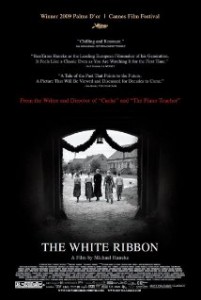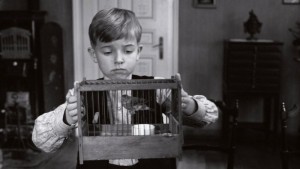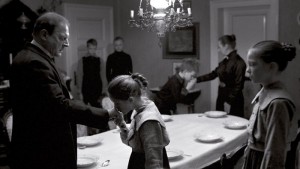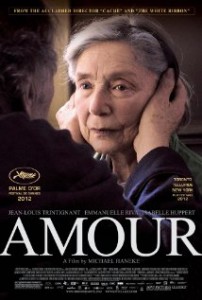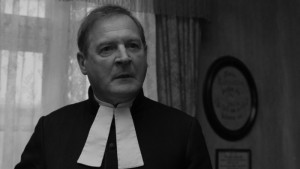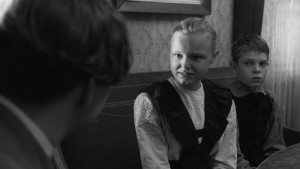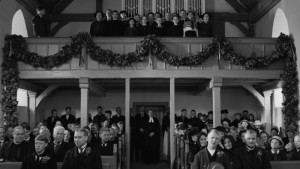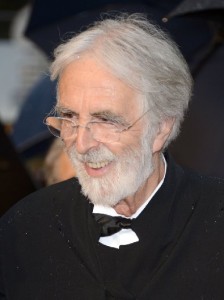The White Ribbon (2009, Michael Haneke) – Classic Film Review 784
Austrian director Michael (Hidden, Funny Games) Haneke’s chilling – and chilly – 2009 Cannes Film Festival Golden Palm-winning work about abused children in a small God-fearing Protestant village in north Germany just before World War One is THE big art film of its year.
A series of strange, tragic events afflict the community and the village’s young schoolteacher (Christian Friedel) eventually tears himself away from his romance with the Baron (Ulrich Tukur)’s governess (Leonie Benesch) to begin to investigate the mystery behind them.
With its difficult themes (sin, guilt, envy, hypocrisy, repression etc) and marvellous, quite startling black-and-white cinematography, this is a film (subtitled A German Children’s Story, by the way) that’s easy to admire and appreciate – even to the point of calling it a masterpiece. Though it’s very much more difficult to like or actually enjoy.
There’s no passion or fire here, only intellectual rigour and a lofty point of view. It’s a kind of cinematic essay rather than a movie. But, if you want to engage brain rather than heart, this is as good a place as any to start.
Haneke’s Amour (2012) is also THE big art film of its year. It also won the Cannes Film Festival Golden Palm and an Oscar Best Foreign Language Film as well.
http://derekwinnert.com/amour-film-review/
(C) Derek Winnert 2014 Classic Film Review 781 derekwinnert.com

